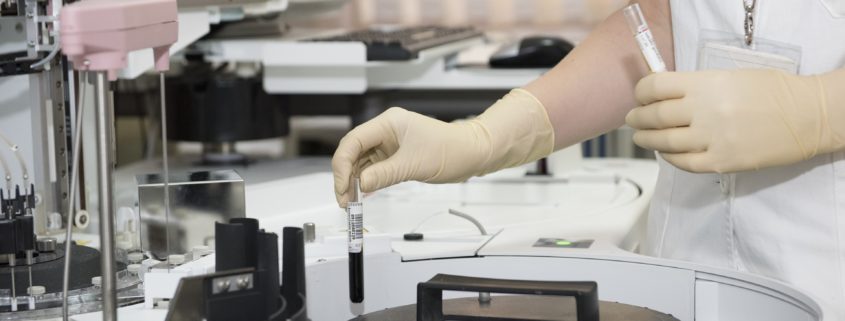At the moment, the diagnosis process can seem longwinded and the options you have available aren’t always exactly what you need. But a new tool could soon change that by allowing professionals to quickly and cheaply build up the diagnostic test that they need.
While it’s still in the early stages of development and is being designed with the challenges third world countries face, it’s an idea that has the potential to shape how diagnostic tests are completed in the future. The diagnostic platform comes from the MIT Little Devices Lab and has been dubbed plug-and-play devices due to their customisable features and versatility.
Ampli, as the device is called, uses a set of modular blocks that can be configured in numerous different ways to create effective diagnostic devices. For example, one way of putting the block together will accurately test blood glucose levels in a diabetic patient, while another configuration will be able to detect a viral infection. With little skill required to put the blocks together, the Ampli development could change the way diagnostic procedures are done.
The modular blocks stand out for a number of reasons.
- They’re low cost – Compared to alternatives, Ampli is incredibly low cost. Each block costs just a few cents making it accessible to smaller labs. It makes it affordable for healthcare professionals to carry out the diagnostic tests that can support patient outcomes and wellbeing.
- They don’t require specialist handling – The Ampli concept was designed to work in labs around the world, including those that aren’t well equipped with the latest tech. They don’t require any specialist handling and don’t even need to be refrigerated, providing more scope for them to be used.
- Diagnostic tests can be completed in-house – In some circumstances, samples need to be sent many miles for even basic tests to be conducted. The modular block approach means they can be completed in-house, reducing wait times and how treatment progresses.
- They’re adaptable – Ampli can act as a single kit to diagnose a range of conditions, with around 40 blocks at present. It’s an adaptable approach to medicine that can be changed to reflect the demands of each healthcare professional.
The team behind Ampli aim to get the product into small labs and they’re already working on new blocks and configurations that would provide further testing capabilities. Is the Ampli approach something you’d like to see expanded to operations in the UK, could it be useful in a modern healthcare setting?


